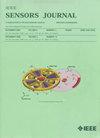A New Adaptive Sound Zone Strategy-Based Hybrid FxNLMS and CNN-LSTM Network for Multichannel Active Noise Control in a Rehabilitation Room
IF 4.3
2区 综合性期刊
Q1 ENGINEERING, ELECTRICAL & ELECTRONIC
引用次数: 0
Abstract
The equipment in the rehabilitation room can generate noise, affecting patients’ emotions and delaying their recovery. To create a quiet area in the rehabilitation room, a new adaptive sound zone strategy-based hybrid adaptive filter and deep learning network for a multichannel active noise control (ANC) system is proposed. First, to enhance the attenuation level in critical areas and achieve better robustness, a novel sound zone control strategy is integrated into the cost function of the proposed multichannel ANC (mcANC) algorithm. Then, an improved hybrid filtered-x normalized least mean square (FxNLMS) and convolutional neural network-based long short-term memory (CNN-LSTM) is utilized instead of a single-adaptive filter to reduce time-varying and long-term periodic noise. In addition, a new phase-tracking filter is employed to assist the CNN-LSTM in enhancing its phase-tracking ability. Moreover, the proposed hybrid FxNLMS and CNN-LSTM multichannel network is more effective at attenuating time-varying noise than the conventional single-filter network. Meanwhile, it offers superior noise reduction and real-time tracking performance compared to the deep ANC network. Also, compared with the conventional delay compensation method, the proposed phase tracking (PT) filter demonstrates a smaller statistical average phase error. Furthermore, simulations using recorded noise in a rehabilitation room model illustrate the efficiency of the proposed method.基于自适应声区策略的FxNLMS和CNN-LSTM混合网络康复室多通道主动噪声控制
康复室的设备会产生噪音,影响患者情绪,延缓患者康复。为了在康复室中创造一个安静的区域,提出了一种基于多通道主动噪声控制(ANC)系统的混合自适应滤波器和深度学习网络的自适应声区策略。首先,为了提高关键区域的衰减水平并获得更好的鲁棒性,将一种新的声区控制策略集成到所提出的多通道ANC (mcANC)算法的代价函数中。然后,利用改进的混合滤波-x归一化最小均方(FxNLMS)和基于卷积神经网络的长短期记忆(CNN-LSTM)代替单一自适应滤波器来降低时变和长周期噪声。此外,采用了一种新的相位跟踪滤波器来增强CNN-LSTM的相位跟踪能力。此外,所提出的混合FxNLMS和CNN-LSTM多通道网络比传统的单滤波器网络更有效地衰减时变噪声。同时,与深度ANC网络相比,它提供了更好的降噪和实时跟踪性能。此外,与传统的延迟补偿方法相比,所提出的相位跟踪(PT)滤波器具有较小的统计平均相位误差。此外,在康复室模型中使用记录的噪声进行仿真,验证了所提方法的有效性。
本文章由计算机程序翻译,如有差异,请以英文原文为准。
求助全文
约1分钟内获得全文
求助全文
来源期刊

IEEE Sensors Journal
工程技术-工程:电子与电气
CiteScore
7.70
自引率
14.00%
发文量
2058
审稿时长
5.2 months
期刊介绍:
The fields of interest of the IEEE Sensors Journal are the theory, design , fabrication, manufacturing and applications of devices for sensing and transducing physical, chemical and biological phenomena, with emphasis on the electronics and physics aspect of sensors and integrated sensors-actuators. IEEE Sensors Journal deals with the following:
-Sensor Phenomenology, Modelling, and Evaluation
-Sensor Materials, Processing, and Fabrication
-Chemical and Gas Sensors
-Microfluidics and Biosensors
-Optical Sensors
-Physical Sensors: Temperature, Mechanical, Magnetic, and others
-Acoustic and Ultrasonic Sensors
-Sensor Packaging
-Sensor Networks
-Sensor Applications
-Sensor Systems: Signals, Processing, and Interfaces
-Actuators and Sensor Power Systems
-Sensor Signal Processing for high precision and stability (amplification, filtering, linearization, modulation/demodulation) and under harsh conditions (EMC, radiation, humidity, temperature); energy consumption/harvesting
-Sensor Data Processing (soft computing with sensor data, e.g., pattern recognition, machine learning, evolutionary computation; sensor data fusion, processing of wave e.g., electromagnetic and acoustic; and non-wave, e.g., chemical, gravity, particle, thermal, radiative and non-radiative sensor data, detection, estimation and classification based on sensor data)
-Sensors in Industrial Practice
 求助内容:
求助内容: 应助结果提醒方式:
应助结果提醒方式:


